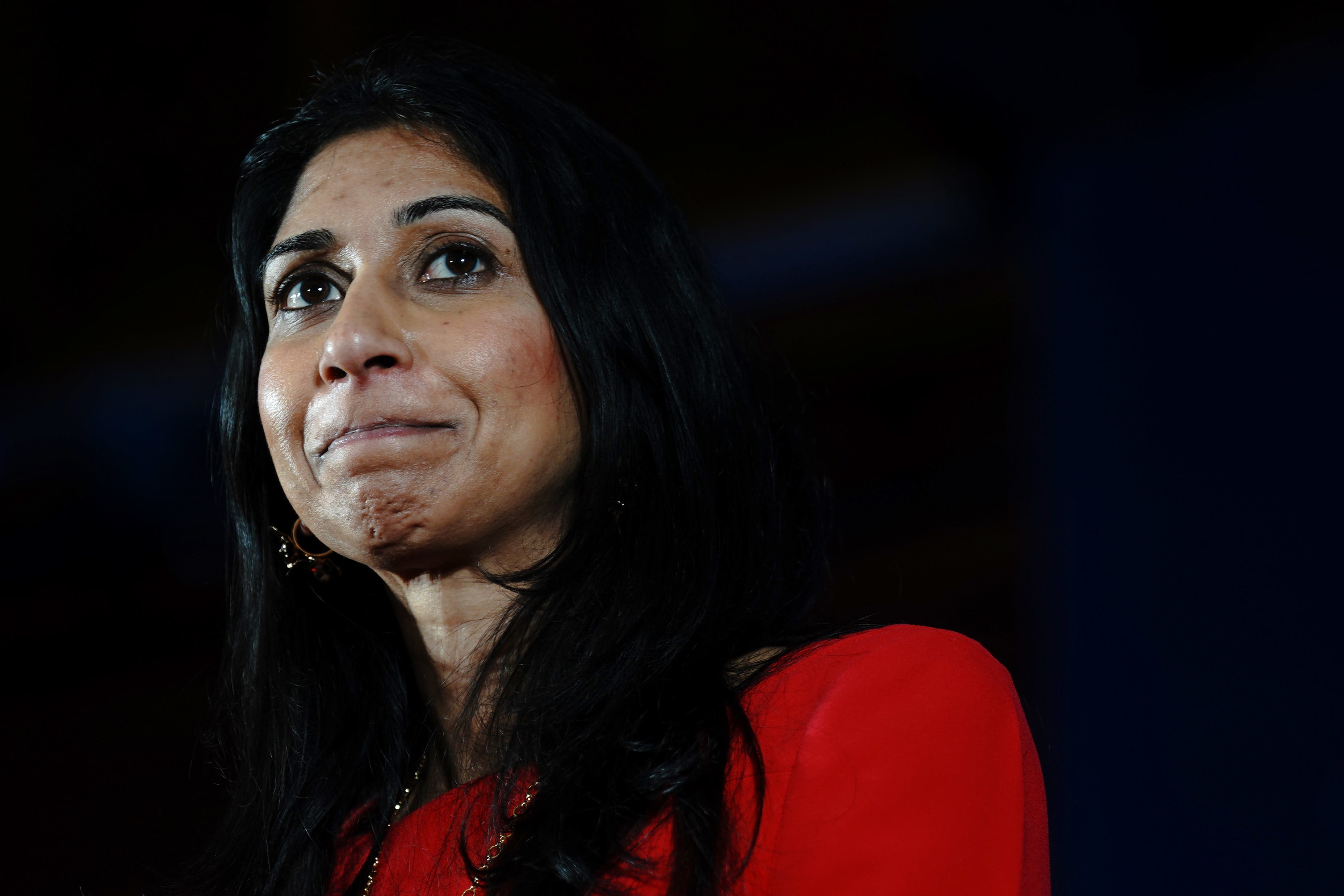Did Suella Braverman break the ministerial code?
There are a number of rules relevant to Braverman’s case, Jon Stone writes


Labour and the Liberal Democrats are calling for an investigation into claims that Suella Braverman asked civil servants to help her avoid being given points on her driving licence.
Opposition parties say the home secretary’s actions may have broken the ministerial code. But did she break the code, and if so, which part?
The home secretary is said to have asked civil servants to arrange a private speed-awareness course for her – which would have got her out of both the points and the PR disaster of attending a public class with other lawbreakers.
The Sunday Times reports that the officials refused to help, and that in the end the home secretary decided to accept the points.
So which parts of the code are relevant? There seem to be a number of sections that the home secretary might be considered to have breached.
First, the code commits ministers to upholding the seven Nolan “principles of public life”. These are general principles that apply to everyone who holds public office.
Principle 1.2 of this list, headlined “integrity”, says that office-holders “should not act or take decisions in order to gain financial or other material benefits for themselves”.
It seems reasonable to argue that not having points on your licence, or not having to attend a personally embarrassing speed-awareness course, could amount to a material benefit for oneself.
But there are other relevant sections that an investigation would have to consider.
The ministerial code also lays down rules about how ministers should interact with civil servants. Section 1.3 J says ministers must “not ask civil servants to act in any way which would conflict with the civil service code [a separate rulebook for Whitehall officials]”.
The civil service code in turn states that civil servants must ensure that “public money and other resources are used properly and efficiently”.
Is spending civil service time managing the home secretary’s lawbreaking a good use of public resources? Civil servants did not seem to think so, as they reportedly declined to assist her. They may, of course, have had other reasons.
There is also a third section of the ministerial code that could reasonably be seen as relevant to judging whether or not Ms Braverman broke the rules.
It says that ministers “must not use government resources for party political purposes”.
While the alleged request does not seem to cross the line into campaigning, there is certainly a question about whether the issue Ms Braverman tried to use civil service time to address was legitimate government business.
If she wanted to go on a private course to avoid bad PR from attending a public one, would that primarily have been for her political benefit? This is a question any inquiry would have to answer.
So, at least at face value, there seem to be a number of rules that Ms Braverman might reasonably be considered to have broken.
Ultimately, it will be for Rishi Sunak to decide whether the ministerial code has been breached. If an inquiry takes place, he will then draw on its findings to help him decide on a course of action.






Join our commenting forum
Join thought-provoking conversations, follow other Independent readers and see their replies
Comments